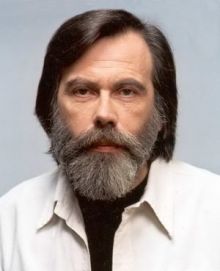I was impressed by the presence of distinguished foreign, including Russian, experts. Suffice it to mention several names: top-notch Sovietologist Richard Pipes; Helene Carrere d’Encausse, member of the French Academy; historian Dominic Lieven, Fellow of the British Academy; Dr. Robert Legvold, Ph.D., Columbia University; ex-Polish Prime Minister Leszek Miller, and leading experts from Russia, China, Japan, Turkey, and Iran.
Russia was represented by noted experts and politicians, outspoken critics of the Putin-Medvedev regime (Sergei Aleksashenko, Vladislav Inozemtsev, Aleksei Malashenko, Vladimir Ryzhkov, and Andrei Zubov, a priest and historian who is somewhat less known in Ukraine), along with experts who collaborate with the existing regime, among them Vyacheslav Nikonov, Sergei Karaganov, Andranik Migranjan, and such distinguished persons in the field as Nikolai Zlobin (actually, a US citizen), and Feodor Lukyanov. There were two writers present, Aleksandr Prokhanov and Viktor Yerofeiev, and Ella Pamfilova, the recently fired chairperson of the Presidential Council for the Promotion of Civil Society Institutions and Human Rights [in Russia].
There was also close media coverage starring Adam Michnik (Gazeta Wyborcza) and his counterparts from Le Monde, The Economist, The Wall Street Journal, The Guardian, Die Welt, to mention but a few.
The organizers’ key idea was a union between Russia and Europe (there was a presentation prepared in keeping with the main guideline). This topic caused a lively debate, quite substantial at times, although by and large it turned out very much like another traditional verbal battle between those from the West and so-called Slavophiles. What made it somewhat different were the foreign participants (not only those from China and Iran). Among the most radical exponents of the Western trend were Russian liberals, who, in my opinion, were “very far removed from the people…” (to quote from Vladimir Lenin), as had been the Decembrists in the early 19th century.
Characteristically, the range of viewpoints reflected the political stand of those who submitted them: Zubov’s History of Russia of the 20th Century: The First Consistent Presentation of History from the Standpoints of the White Guard and the R[ussian] O[rthodox] C[hurch], all the way to Aleksandr Prokhanov’s pro-Soviet (Stalinist) views, even though he found himself without support and took it in his solitary stride.
For the first time I had an opportunity to sail down the Svir River, then across the great lakes of Onega and Ladoga. The environs were breathtaking, although there was the nagging thought of Stalinist camps like Zverigin and others once located somewhere around there. Previously we’d heard a lecture about the victims of such camps in the locality, but then we visited Kizhi Island and St. Alexander-Svir Monastery, an unforgettable experience.
In St. Petersburg, the members of the club session arranged for us a meeting with Governor Valentina Matviyenko, a charismatic lady who was perfectly sure of her views, and her just cause. I keep remembering her, wondering what makes a Ukrainian woman stand out so much from among Russian women in the political domain. I think she would have been a serious contender in any Ukrainian presidential campaign.
Our dinner with Vladimir Putin in Sochi marked the end of our program. With him, meeting with Valdai Club members had long become yet another tradition (I think ours was the eighth one). He conducted an active and friendly dialog, traded jokes, and was emotional about a couple of questions. His answer to the main question, about his running for Russian presidency or stepping down in favor of Medvedev, in 2012, seemed prepared long in advance: zilch (although we had anticipated this). Putin kept the dramatic pause, then said: “We’ll meet with Dmitry Medvedev at the right time and reach an understanding. We each of us are in the right position; we have been effective in this capacity and intend to remain so. We will act as we think is right and beneficial to this country…”
In response to my question about the relationships between Russia and Ukraine, Putin said that economic cooperation, following the change of political power in Ukraine, was showing progress, and that it could reach a higher level, including lower Russia-Ukraine gas supply costs, adding that whether or not this level would be reached, would depend exclusively on Ukraine.
There were no CIS experts, probably the Valdai Club’s unwritten tradition. I still don’t know why they let me attend. Anyway, one of the panel discussions was entitled “Russia, Neighbors: Optimal and Actual Interaction Models.” Yet even there the emphasis was on Poland and Georgia, with a fleeting mention of Ukraine, simply because I was given the floor.
Mykhailo Pohrebynsky is the head of Kyiv’s Political Study and Conflict Resolution Center







